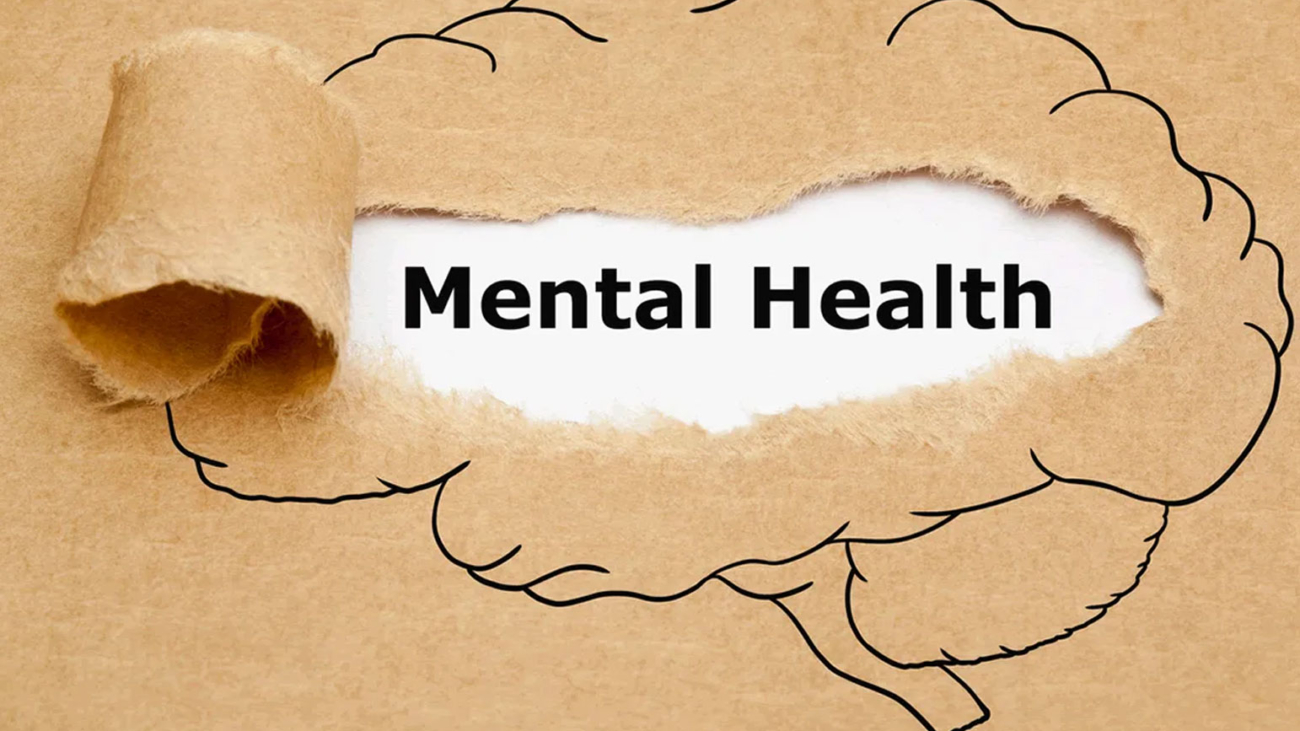History of Human Evolution and History of Change – a closer look would reveal that the two have been strongly interwoven for all known time. Change has picked pace and thrived after Human Beings started to dominate. It would be very pertinent to say that Human beings started to dominate and thrive on Planet Earth once the human race learnt to initiate and adapt to change — The Art of Change.
Medieval and Modern History witnessed the relationship between change and Human Race getting thicker and better. Incremental change gave way to disruptive change. Ever since Industrial Revolution took place, Countries and societies that have pioneered and embraced change dominated the rest of the world. The remaining Countries and societies across the world were ruled by these pioneering countries and eventually adopted the same change.
For the current and last few generations, change has been a part of everyday life. Did we resist? No. We embraced change. We changed the way we buy, we communicate, we travel, we entertain ourselves and what not? Have we as a species undergone any mass change management programs and courses to traverse through all these changes? No. We have been welcoming of all these changes.
Why as employees we are unwilling to accept change while as Human Beings we have been welcoming of change? Is Change Management the best way to navigate through change in an organization? Can we find a better approach?
The answers to these questions lie in adopting Change Embracement as an approach with Change Management as a sub-process. Let’s see what this means.
Change Management Conventional Change Management in corporate world has majorly been as follows:
- Top Management identifies a particular change initiative as a solution to a specific organizational problem
- Top Management expects that stakeholders (mostly employees) would be resistant to change and tackles the resistance by convincing stakeholders about the necessity/advantages of the change initiative — typically called Change Management.
- People assigned with the task would organize and implement the initiative in a coordinated and organized manner.
The brighter side of change management is the way change is organized as a process, coordinated with stake holders and followed through until successful conclusion. The flipside is it takes a top-down approach with Management first zeroing up on a change initiative followed by trying to sell the idea to employees to ensure they do not resist and then going through the next steps of implementing the change initiative. Firstly, this does nothing about pioneering change. This approach is more like a person trying to woo another into a short term romantic relationship. In the current age where information is as pervasive as air, the stake holders can easily see through these wooing efforts. The result is that evidence indicates only 30% success in all of change management initiatives in corporate world.
What we propose here is a shift in going about change. All of history suggests that initiators of change thrive, those who adapt to change survive and the rest perish. Hence it would be a smarter idea to become an organization that is exploring and initiating change rather than being someone who goes about change reluctantly or even worse, do not change. In order to be among those who thrive, we need to build organizations that constantly invent or explore opportunities to change and then embrace it at an organizational level and not just at Top Management level. History of Human Evolution and History of Change – a closer look would reveal that the two have been strongly interwoven for all known time. Change has picked pace and thrived after Human Beings started to dominate. It would be very pertinent to say that Human beings started to dominate and thrive on Planet Earth once the human race learnt to initiate and adapt to change — The Art of Change.
Medieval and Modern History witnessed the relationship between change and Human Race getting thicker and better. Incremental change gave way to disruptive change. Ever since Industrial Revolution took place, Countries and societies that have pioneered and embraced change dominated the rest of the world. The remaining Countries and societies across the world were ruled by these pioneering countries and eventually adopted the same change.
For the current and last few generations, change has been a part of everyday life. Did we resist? No. We embraced change. We changed the way we buy, we communicate, we travel, we entertain ourselves and what not? Have we as a species undergone any mass change management programs and courses to traverse through all these changes? No. We have been welcoming of all these changes.
Why as employees we are unwilling to accept change while as Human Beings we have been welcoming of change? Is Change Management the best way to navigate through change in an organization? Can we find a better approach?
The answers to these questions lie in adopting Change Embracement as an approach with Change Management as a sub-process. Let’s see what this means.
Change Management Conventional Change Management in corporate world has majorly been as follows:
- Top Management identifies a particular change initiative as a solution to a specific organizational problem
- Top Management expects that stakeholders (mostly employees) would be resistant to change and tackles the resistance by convincing stakeholders about the necessity/advantages of the change initiative — typically called Change Management.
- People assigned with the task would organize and implement the initiative in a coordinated and organized manner.
The brighter side of change management is the way change is organized as a process, coordinated with stake holders and followed through until successful conclusion. The flipside is it takes a top-down approach with Management first zeroing up on a change initiative followed by trying to sell the idea to employees to ensure they do not resist and then going through the next steps of implementing the change initiative. Firstly, this does nothing about pioneering change. This approach is more like a person trying to woo another into a short term romantic relationship. In the current age where information is as pervasive as air, the stake holders can easily see through these wooing efforts. The result is that evidence indicates only 30% success in all of change management initiatives in corporate world.
What we propose here is a shift in going about change. All of history suggests that initiators of change thrive, those who adapt to change survive and the rest perish. Hence it would be a smarter idea to become an organization that is exploring and initiating change rather than being someone who goes about change reluctantly or even worse, do not change. In order to be among those who thrive, we need to build organizations that constantly invent or explore opportunities to change and then embrace it at an organizational level and not just at Top Management level. Components of Change Embracement:
Change-ready Culture: Build an organization where stakeholders are proactive with respect to change or rather create change for the better. Following are some of the steps to keep in mind while trying to build a Change Embracement Culture.
- Change-readiness should be built-in as one of the core values as that’s the cornerstone to progress in the current times. In order for this to be accepted, the organization should build a safety-net wherein members of the organization who get adversely affected by Change are not just seen as collateral damage.
- The organization should build an environment of trust where people are confident that though they may lose turf sometimes as a result of a new way of doing things or doing new things, they would be adequately taken care of. This dispels any doubts and kills reluctance to change thereby eliminating the need to woo or trick employees into accepting change.
- The organization needs to create and publicize success stories of people who have embraced change and made progress.
- This should be built to an extent where Change is looked at as an opportunity rather than as a threat.
Associates vs with Management: In organizations where Change Embracement is built as a cultural aspect, initiation of change or identification of opportunities for progressive change can come from anyone and any corner. Unlike a traditional organization where change is Top driven and Management views employees as set of people who need to be tackled with, organizations with a change embracement approach create more opportunities for progressive change. Progressive Change is allowed to be conceived at any level and associates themselves have an opportunity to initiate and propose change. Progressive change becomes a way of approaching work rather than a transactional affair between management and associates. This kills any possibility of associates vs management situation and rather facilitates associates with management situations. This makes such organizations more likely to be pioneers of change than followers of change. In such organizations, change is a way of day-to-day life…. be it frequent but minor incremental changes which improve a process one step at a time or a break-through change that creates a plunge into the future for the whole organization, they kill stagnancy and cause progression. All such initiatives are welcomed.
Change-agility Competency: While the cultural aspect is being built, it is also important to build change-agility as a competence at individual levels. While change-ready culture builds enthusiasm around change embracement and an environment of trust at organizational level, building the required competencies to ensure success at individual levels builds platform for Success. This is similar to Macro-Economic Management & Micro-Economic Management. Change agility is all about the ability to think through the impact of Change till a granular level, adapt self and help the surroundings adapt to change in an astute manner.
Change- Management Skill: Having made the field ready for deploying change, now we go back to our good old concepts related to Change Management of Organizing, coordinating, informing and implementing change. Change Management now takes the form of a skill which is less complex and can be drawn into a set of sequential steps which can be walked through with higher ease. The difference is that this is now purely administrative in nature and requires very less work around convincing reluctant employees to change. The organization is change-ready at a cultural level, people are competent at implementing change and hence change management is very likely to be a walk in the park with enhanced chances of success. History of Human Evolution and History of Change – a closer look would reveal that the two have been strongly interwoven for all known time. Change has picked pace and thrived after Human Beings started to dominate. It would be very pertinent to say that Human beings started to dominate and thrive on Planet Earth once the human race learnt to initiate and adapt to change — The Art of Change.
Medieval and Modern History witnessed the relationship between change and Human Race getting thicker and better. Incremental change gave way to disruptive change. Ever since Industrial Revolution took place, Countries and societies that have pioneered and embraced change dominated the rest of the world. The remaining Countries and societies across the world were ruled by these pioneering countries and eventually adopted the same change.
For the current and last few generations, change has been a part of everyday life. Did we resist? No. We embraced change. We changed the way we buy, we communicate, we travel, we entertain ourselves and what not? Have we as a species undergone any mass change management programs and courses to traverse through all these changes? No. We have been welcoming of all these changes.
Why as employees we are unwilling to accept change while as Human Beings we have been welcoming of change? Is Change Management the best way to navigate through change in an organization? Can we find a better approach?
The answers to these questions lie in adopting Change Embracement as an approach with Change Management as a sub-process. Let’s see what this means.
Change Management Conventional Change Management in corporate world has majorly been as follows:
- Top Management identifies a particular change initiative as a solution to a specific organizational problem
- Top Management expects that stakeholders (mostly employees) would be resistant to change and tackles the resistance by convincing stakeholders about the necessity/advantages of the change initiative — typically called Change Management.
- People assigned with the task would organize and implement the initiative in a coordinated and organized manner.
The brighter side of change management is the way change is organized as a process, coordinated with stake holders and followed through until successful conclusion. The flipside is it takes a top-down approach with Management first zeroing up on a change initiative followed by trying to sell the idea to employees to ensure they do not resist and then going through the next steps of implementing the change initiative. Firstly, this does nothing about pioneering change. This approach is more like a person trying to woo another into a short term romantic relationship. In the current age where information is as pervasive as air, the stake holders can easily see through these wooing efforts. The result is that evidence indicates only 30% success in all of change management initiatives in corporate world.
What we propose here is a shift in going about change. All of history suggests that initiators of change thrive, those who adapt to change survive and the rest perish. Hence it would be a smarter idea to become an organization that is exploring and initiating change rather than being someone who goes about change reluctantly or even worse, do not change. In order to be among those who thrive, we need to build organizations that constantly invent or explore opportunities to change and then embrace it at an organizational level and not just at Top Management level.
Components of Change Embracement:
Change-ready Culture: Build an organization where stakeholders are proactive with respect to change or rather create change for the better. Following are some of the steps to keep in mind while trying to build a Change Embracement Culture.
- Change-readiness should be built-in as one of the core values as that’s the cornerstone to progress in the current times. In order for this to be accepted, the organization should build a safety-net wherein members of the organization who get adversely affected by Change are not just seen as collateral damage.
- The organization should build an environment of trust where people are confident that though they may lose turf sometimes as a result of a new way of doing things or doing new things, they would be adequately taken care of. This dispels any doubts and kills reluctance to change thereby eliminating the need to woo or trick employees into accepting change.
- The organization needs to create and publicize success stories of people who have embraced change and made progress.
- This should be built to an extent where Change is looked at as an opportunity rather than as a threat.
Associates vs with Management: In organizations where Change Embracement is built as a cultural aspect, initiation of change or identification of opportunities for progressive change can come from anyone and any corner. Unlike a traditional organization where change is Top driven and Management views employees as set of people who need to be tackled with, organizations with a change embracement approach create more opportunities for progressive change. Progressive Change is allowed to be conceived at any level and associates themselves have an opportunity to initiate and propose change. Progressive change becomes a way of approaching work rather than a transactional affair between management and associates. This kills any possibility of associates vs management situation and rather facilitates associates with management situations. This makes such organizations more likely to be pioneers of change than followers of change. In such organizations, change is a way of day-to-day life…. be it frequent but minor incremental changes which improve a process one step at a time or a break-through change that creates a plunge into the future for the whole organization, they kill stagnancy and cause progression. All such initiatives are welcomed.
Change-agility Competency: While the cultural aspect is being built, it is also important to build change-agility as a competence at individual levels. While change-ready culture builds enthusiasm around change embracement and an environment of trust at organizational level, building the required competencies to ensure success at individual levels builds platform for Success. This is similar to Macro-Economic Management & Micro-Economic Management. Change agility is all about the ability to think through the impact of Change till a granular level, adapt self and help the surroundings adapt to change in an astute manner.
Change- Management Skill: Having made the field ready for deploying change, now we go back to our good old concepts related to Change Management of Organizing, coordinating, informing and implementing change. Change Management now takes the form of a skill which is less complex and can be drawn into a set of sequential steps which can be walked through with higher ease. The difference is that this is now purely administrative in nature and requires very less work around convincing reluctant employees to change. The organization is change-ready at a cultural level, people are competent at implementing change and hence change management is very likely to be a walk in the park with enhanced chances of success.
Components of Change Embracement:
Change-ready Culture: Build an organization where stakeholders are proactive with respect to change or rather create change for the better. Following are some of the steps to keep in mind while trying to build a Change Embracement Culture.
- Change-readiness should be built-in as one of the core values as that’s the cornerstone to progress in the current times. In order for this to be accepted, the organization should build a safety-net wherein members of the organization who get adversely affected by Change are not just seen as collateral damage.
- The organization should build an environment of trust where people are confident that though they may lose turf sometimes as a result of a new way of doing things or doing new things, they would be adequately taken care of. This dispels any doubts and kills reluctance to change thereby eliminating the need to woo or trick employees into accepting change.
- The organization needs to create and publicize success stories of people who have embraced change and made progress.
- This should be built to an extent where Change is looked at as an opportunity rather than as a threat.
Associates vs with Management: In organizations where Change Embracement is built as a cultural aspect, initiation of change or identification of opportunities for progressive change can come from anyone and any corner. Unlike a traditional organization where change is Top driven and Management views employees as set of people who need to be tackled with, organizations with a change embracement approach create more opportunities for progressive change. Progressive Change is allowed to be conceived at any level and associates themselves have an opportunity to initiate and propose change. Progressive change becomes a way of approaching work rather than a transactional affair between management and associates. This kills any possibility of associates vs management situation and rather facilitates associates with management situations. This makes such organizations more likely to be pioneers of change than followers of change. In such organizations, change is a way of day-to-day life…. be it frequent but minor incremental changes which improve a process one step at a time or a break-through change that creates a plunge into the future for the whole organization, they kill stagnancy and cause progression. All such initiatives are welcomed.
Change-agility Competency: While the cultural aspect is being built, it is also important to build change-agility as a competence at individual levels. While change-ready culture builds enthusiasm around change embracement and an environment of trust at organizational level, building the required competencies to ensure success at individual levels builds platform for Success. This is similar to Macro-Economic Management & Micro-Economic Management. Change agility is all about the ability to think through the impact of Change till a granular level, adapt self and help the surroundings adapt to change in an astute manner.
Change- Management Skill: Having made the field ready for deploying change, now we go back to our good old concepts related to Change Management of Organizing, coordinating, informing and implementing change. Change Management now takes the form of a skill which is less complex and can be drawn into a set of sequential steps which can be walked through with higher ease. The difference is that this is now purely administrative in nature and requires very less work around convincing reluctant employees to change. The organization is change-ready at a cultural level, people are competent at implementing change and hence change management is very likely to be a walk in the park with enhanced chances of success.









